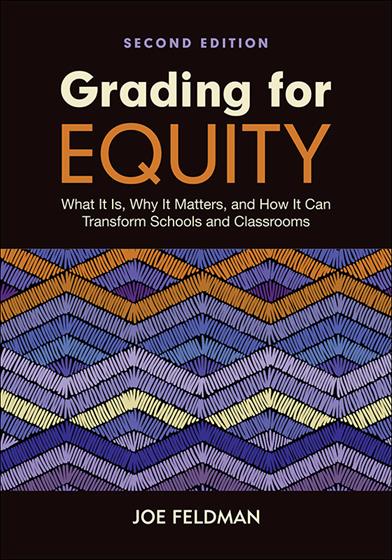Hands-on, Practical Guidance for Educators
From math,
literacy, science, equity, multilingual learners, and SEL, to assessment, school counseling,
and education leadership, our books are research-based and authored by experts
on topics most relevant to what educators are facing today.

Bestseller!
Grading for Equity
What It Is, Why It Matters, and How It Can Transform Schools and Classrooms
Second Edition
By:
Joe Feldman
The updated edition of Grading for Equity is a valuable resource for anyone invested in grading and its impact on students’ education, mental health, and future opportunities.
Product Details
- Grade Level: PreK-12
- ISBN: 9781071876602
- Published By: Corwin
- Year: 2023
- Page Count: 344
- Publication date: September 06, 2023
Review Copies
Review copies may be requested by individuals planning to purchase 10 or more copies for a team or considering a book for adoption in a higher ed course. Request review copy

